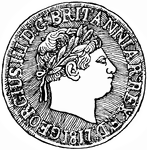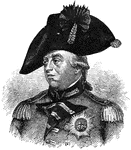Clipart tagged: ‘King George’

British Sovereign of George III, 1817, Obverse
A British gold coin from the time of George III. The obverse of the coin bears his profile.

George III, King of England
"George III (1760-1815). The first two Hanoverian kings were ignorant of English politics and obliged…